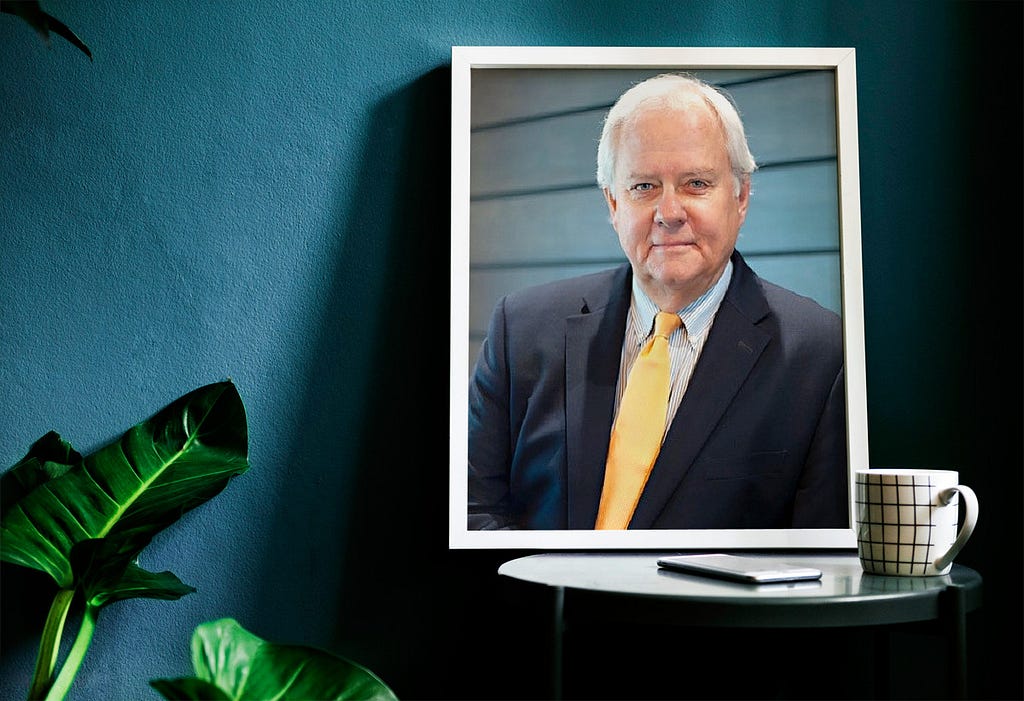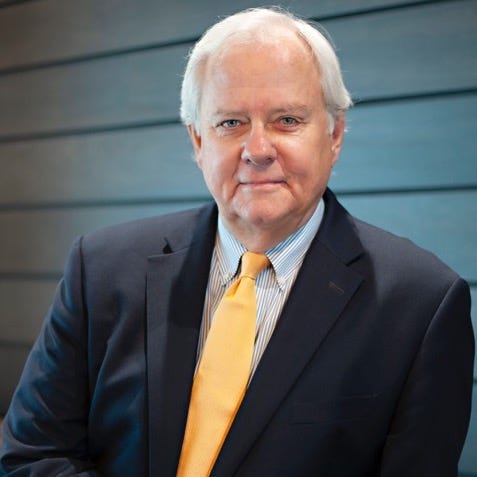
“I would change the health care narrative from a fragmented discussion with too much special interest inputs, to a much clearer understanding of both problems and solutions. Because there are actually solutions that are good for both the conservative view and the liberal view if we can develop the clarity that winning for our patients and families benefits all interests. With the right planning and solutions, we can create outcomes that not only optimize social justice but also create a more positive impact on our business economy, but it will require meaningful LISTENING and informed compromise for interested parties.”
Ihad the pleasure of interviewing Dr. Jack Cochran. Dr. Cochran is a Stanford trained surgeon who has dedicated his career to improving health care for patients and families in a number of roles. He had a successful career as a clinical Plastic and Reconstructive Surgeon that included a private practice surgeon group, founding a plastic surgery service at Kaiser Permanente Colorado and as a volunteer visiting surgeon teaching and performing surgery in developing countries including a long-term dedication in Tanzania East Africa. He then became involved in leadership as an executive as President of the Kaiser Permanente Colorado medical group and the national physician executive director (CEO) of the Permanente Federation and served on several boards of leading health care organizations. He is currently actively writing and speaking about the transformation of healthcare in the digital age and the potential of strong physician leadership globally. And he is functioning as an advisor, and board member to a small group of healthcare IT companies.
Thank you so much for joining us! What is your “backstory”?
Any backstory is my growing awareness of the issues facing patients and families. In spite of advances, breakthroughs, miracles, and even cures, patients and families still experience the uneven quality and access as well as a growing challenge to keep basic care affordable. Seeing the physician as primarily a clinician narrows our potential influence on helping our patients and families. Accepting, embracing, and leveraging our basic trusted covenant as a healer, we have the opportunity to more broadly influence health care by understanding and developing the roles of leader and partner. Since this is not part of our core training, my book provides very practical training and education for physicians that is proven and readily understood. It teaches them to take this new area of learning from a vague challenge to a state of competence and confidence, to add a truly compassionate and capable skill set for aspiring physician leaders from neophyte to senior executive.
Can you share the funniest or most interesting story that occurred to you in the course of your career?
On a mission trip to the Philippines, our team of 4 U.S. surgeons met a second-year general surgery resident ( with NO plastic surgery training) named Victor who surprised all of us by how much we learned from HIM!
Victor would assist us in performing complex facial reconstructions and work with one of us each day for 2 weeks. After working with him, each of us separately became aware that he was not only a gifted technical surgeon ( intrinsic skill !!!) but also an amazingly fast learner and unusually great to work with. In fact, after a few days, his command of the scope of the problems inherent in most deformities combined with his innate coordination and skills made us let him do more and more work under our watchful eyes. After a week, our little team of Americans had dinner and the topic was “OMGoodness, what is going on with this kid and what can we learn from him?”
After much reflection, we decided, in addition to his innate skills and fast mind he had some traits that WE all needed to learn from and internalize. They were his approach and demeanor in the operating room gave an air of quiet respect and calm. He was cheerful but quiet in his confidence and he brought a tone of reverence to the room, the patient, and the team. It was such a powerful realization that his attitude and demeanor at age 26 were so impactful.

What are some of the most interesting or exciting projects you are working on now?
Physician Leadership book and article writing combined with speaking and coaching to deepen the capability and confidence of leaders.
Advising a small number of companies in the healthcare IT space that is creating true breakthroughs including a board member of Clarify Health Solutions.
Volunteering in East Africa as a surgeon and teacher.
Which people in history inspire you the most? Why?
My family because of their values, support, and commitment to education, learning, and service.
Nelson Mandela
Helen Keller
Coach John Wooden
Warren Buffett
All four of them showed how integrity and unwavering values prevail. Mandela obviously paid a higher price.
Which literature do you draw inspiration from? Why?
History as a source of learning and understanding.
Biography of great leaders.
Contemporary writing on leadership and culture as this area is becoming rapidly more evolved.
How do you think your writing makes an impact in the world?
Clinicians ( doctors, nurses, pharmacists, therapists, etc.) have a disproportionate impact on the patient and family experience in health care so we should accept disproportionate responsibility. This book will provide the reader with the competence and competence to lead the future. We begin with a major focus on “Why?” and then provide proven examples of “What” and “How” to be impactful.
What advice would you give to someone considering becoming an author like you?
START!!! Every endeavor we have ever undertaken started from a position of inexperience and incompetence. The key is to get crystal clear on our own values and sense of personal mission and then seek the training needed and develop your “coalition of courageous colleagues” to learn with you and be a support group. And be relentless!!
If you could start a movement that would bring the most amount of good to the most amount of people, what would that be?
I would change the health care narrative from a fragmented discussion with too much special interest inputs, to a much clearer understanding of both problems and solutions. Because there are actually solutions that are good for both the conservative view and the liberal view if we can develop the clarity that winning for our patients and families benefits all interests. With the right planning and solutions, we can create outcomes that not only optimize social justice but also create a more positive impact on our business economy, but it will require meaningful LISTENING and informed compromise for interested parties.
What are your “5 things I wish someone told me when I first started” and why?
- The starting point should not limit your aspiration or success. It will definitely influence the path and the pace of your success but should not limit your vision.
- Value Dissent. Challenge Cynicism.
- LISTEN, acknowledge, challenge, learn. And keep repeating to get to #4.
- Effective leadership is a continuous process of sharing context and information, listening and challenging to understand and persist in this iterative process to develop a shared context, mutual learning, and co-create understanding and solutions
- It’s not enough to be bright. It may often not be enough to be right. You also have to be effective.
AND
When undertaking difficult challenges and leading complex change, you will sometimes fail. At that point, you must acknowledge, learn, re-evaluate and FORGIVE YOURSELF!
Is there a person in the world, or in the US whom you would love to have a private breakfast or lunch with, and why?
I would love to sit down and have a private breakfast with Warren Buffett.
Changing the Health Care Narrative: An Interview with Jack Cochran was originally published in Thrive Global on Medium, where people are continuing the conversation by highlighting and responding to this story.
